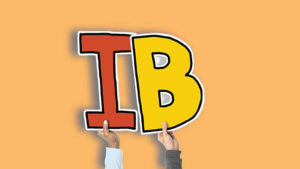Ways to learn French are considered the most important part in the process of learning this language. To be able to become fluent in French, learners need to have a specific method and persevere in a certain time to achieve the desired results.
1. Where to start learning French?
It’s inevitable for everyone to be confused when starting to learn a new language, but being persistent and not giving up will help you become more confident when learning French. Mental stability and finding the right study method is an effective “medicine” for improving your ability. These are some ways to learn French for your reference.
See also: French courses
1.1. Learn pronunciation
French alphabet is neither difficult nor easy, so you can use it as a stepping stone to feel comfortable getting to know each other, and at the same time realize this “love language” doesn’t fit either.
-
- Vowels that need rounded lips when pronouncing: e, u, o
- Consonants that need rounded lips when pronouncing: g, h, j, q
- “H” muet – silent “h” sound
- The consonant “r” is not “roulé” (tongue curl) but will vibrate from the throat (you will also have to pronounce this sound when reading the French “y”).
1.2. Learn spelling
Most French words also rhyme like Vietnamese, so you need to know how to pronounce the first, rhyme, and last sounds. You also need to practice pronouncing consonants, vowels (voyelle) and semi-vowels (semi-voyelle). Consonants, vowels and semi-vowels here are not letters but phonemes (phonème). So you need to pay attention to the sign (signe) – the letter represents that sound.
For example, “au”, “eau”, “o” are all pronounced /o/ and “ô tô” in Vietnamese comes from the word “auto” (short for automobile – car in French).
Don’t forget that /ɑ̃/, /ɛ̃/, /ɔ̃/, /œ̃/ are nasal sounds and you can practice your pronunciation by experimenting with a few sample greetings in French as follows:
-
- Bonjour: Hello / Good morning
- Bonsoir: Hello / Good evening / Goodbye (in the evening)
- Salut: Hello / Goodbye (intimate relationship)
- Allô: Hello (typical of French in Québec – Canada)
- Je m’appelle Mint: My name is Mint
- Au revoir: Goodbye
- À bientôt: See you soon
1.3. Learn vocabulary
The way to vocabulary is the next important step not only for beginners to learn French, but also for longtime French learners to maintain this habit. Learn only 10 words a day, you will learn 300 words a month, a year you know 3600 words. However, there are a few things you should keep in mind to get the most out of it:
-
- Learn vocabulary by topic: For example, you choose a group of words related to food, travel, beauty, fashion… You can do this step with words that you often encounter in practice and remember words longer.
- Use images and sounds: This is an old method but still works. This will reduce boredom when studying and help you remember faster.
- Write down common words or phrases: Not only to record common words, you should write down all phrases or sentences to remember how to use those words, and also record them to avoid forgetting how to use them.
- Learn related words: When you do this, you will not only remember words faster, but also remember more words.
- Review new words on a regular basis: Learning will be meaningless if you do not review the words you have learned. There are many ways to review the words: reread your notebook, listen to them a lot, put them into practice…
1.4. Learn grammar
Even for native speakers, French grammar is difficult, because it is based on many rules and conjugations. But if you focus too much on grammar, you will make it difficult in many communication situations, the opponent cannot just wait to complete the structure to be able to communicate. So some ways to learn French grammar as below are useful for you.
-
- Know how to construct sentences: A language is made up of word components that are put together to form meaningful sentences. These words include nouns, adjectives, pronouns, verbs, adverbs, prepositions, conjunctions, and articles. You need to master how to arrange sentences for a good essay or a coherent speech.
- Read as much as possible: To master a language, you have to read a lot. This allows you to learn about different cultures while enriching your grammar. Reading novels, science fiction books, biographies, essays or articles and identifying different possible sentence structures, word order, spelling… is always a useful method to practice your language.
- Listen to how people around you speak French: Pay attention to how they construct sentences, word placement, vocabulary used, and if you hear a new word or an unfamiliar sentence, ask them explain or look in grammar books. Express and transform the words you hear into your own to improve your language level.
2. Top 5 self-study French textbooks
-
- French Textbooks of Ministry of Education and Training: This is a standard set of books for students who can study at school or home with rich content emphasizing all 4 skills of listening – speaking – reading – writing.
- Easy French Step-by-Step: The book is compiled in the form of a sentence pattern notebook, including common greetings, self-introduction, personality, lifestyle… in the form of memorization.
- DELF Prim: A beginner’s book for elementary to middle school students that can be learned, especially for those who are just starting out and don’t know anything, explained from the alphabet to the spelling in a specific way.
- Le Nouvel Espaces: The book is for high school students and must have a basic level of English to learn because of the way the instructions are compared with French and English.
- Le Nouveau Taxi: The book is popular because of the number of diverse topics, thereby expanding the vocabulary and discovering many new grammar points.
3. Top 5 websites to learn French online for free
Currently, it is not difficult to find websites that support self-study French for free, you can refer to the following 5 platforms:
With online French learning resources, you can completely self-study French at home from beginner to advanced levels and even communicative French if you really spend enough time studying and persevere until you get good results.
There are also many other French learning apps that you can easily find on the internet as long as you consider and choose reputable learning sources.
See also: Foreign languages
4. French self-study pathways
4.1. French alphabet
Like many other languages in Europe, French uses Latin alphabet consisting of 26 letters, in which the letters “w” and “k” are rarely used, but are found mainly in foreign loan words.
French also has a system of punctuation marks such as aigu, grave, apostrophes… as well as two ligatures “ae” and “oe” used in words of Latin or Greek origin.
4.2. Self-study French experience for beginners
-
- Not just knowing all the verbs will make you a grammar superstar, good at conjugating only 1/3 of the grammar.
- After understanding the structures that make up sentences, then we will continue to learn about component clusters in special sentence forms.
- Don’t be afraid to use the table de conjugaison, conjugation books, and look up apps to conjugate unfamiliar verbs.
- When reading an article every day, listening to the radio, or watching the TV news, always have a dictionary on hand.
- Practice writing short sample essays such as a descriptive paragraph, this helps you apply all the necessary grammatical structures such as declarative sentences, interrogative sentences, negative sentences…
See also: Where to learn French?
Intertu Education is currently enrolling students for communicative English, academic English, specialized English, business English, Chinese, French, Spanish. If you have any questions, please contact us directly, via email or hotline for a free consultation.







